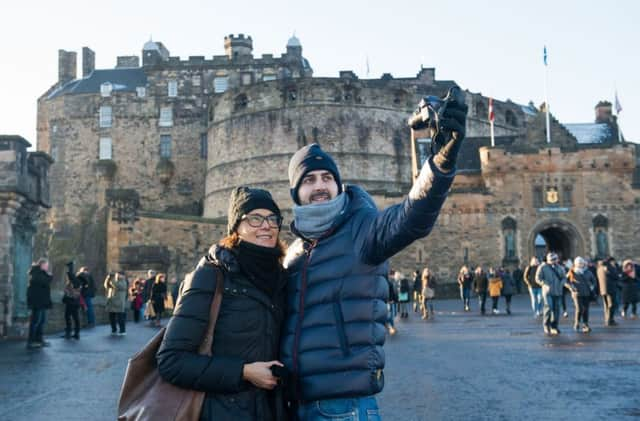Dismay at raft of taxes in budget deal with Greens


They are now demanding face-to-face talks with the Finance Secretary, Derek Mackay, amid growing concerns of a breakdown in relations between industry leaders and Holyrood.
The SNP Government is accused of jeopardising economic growth at a time of deep uncertainty over Brexit to strike a political deal with the Greens which secured passage of its £34 billion budget last week. A new tourist tax, workplace parking levy, increased plastic bag charge and levy for disposable cups were all announced, along with powers for town halls to axe rates relief on empty commercial properties.
Advertisement
Hide AdAdvertisement
Hide AdThere are fears that Scotland’s £11 billion flagship tourism industry could suffer under the new visitor levy, possibly £2 a night on hotel.
Marc Crothall, chief executive of the Scottish Tourism Alliance (STA), says the move reneges on previous government pledges to oppose the move.
He told Scotland on Sunday: “There’s humiliation, we feel let down that it’s been quite a swift decision that’s been taken – a concession to the Greens.
He added: “It is a political deal. It has not been influenced by, for example Edinburgh City Council saying you must have a tourist tax. It’s a direct deal with the Greens to get the budget through. That’s what’s disappointing and I genuinely believe that the Scottish Government giving up this agreement has hurt a huge number of them.
“The tourism tax was not [previously] a policy that the Scottish Government would be prepared to give way on. For that reason the industry are very, very disappointed.”
Previous estimates from the British hospitality industry have indicated that Scotland’s economy could suffer a £175 million annual hit as tourist spending falls as a result of the tax. Room occupancy levels are already down in Glasgow and Edinburgh and the STA wants a full analysis of the impact before individual councils decide to introduce a visitor levy.
He added: “This sector is seen as the goose that lays the golden egg and contributes a huge amount of money in business rates and other forms of payments to the local authority purses – it’s not one that can continue to be robbed or squeezed any further.
The introduction of a workplace parking levy, which could see Scots charged up to £500 a year to drive to work, could also damage growth as firms are hit with additional costs.
Advertisement
Hide AdAdvertisement
Hide AdThe national levy on plastic bags will also double to 10p with councils keeping the extra revenues, while a levy on disposable plastic coffee cups will also be introduced.
The extent of the new powers came as a shock to many business leaders who feel too many concessions were made to the six Green MSPs in the deal.
Colin Borland, of the Federation of Small Businesses said: “We’ll be seeking early meetings with the Scottish Government to discuss the fall-out from Thursday’s policy announcements. On more than one front, ministers doubled-back on previous commitments, leading to confusion and dismay amongst the business community.”
He added: “There’s disappointment in the business community, especially in the tourism sector, about the manner in which some of these decisions were made.
“Generally speaking, the current Scottish Government has had very good relations with local operators. Relations can’t break down because firms feel they can’t take stated government policy at face value.”
David Lonsdale, head of the Scottish Retail Consortium, had called for politicians to ensure a budget was passed last week amid fears no deal would be reached. But he described the lack of detail and clarity set out in some of the measures “striking”.
He warned: “They are likely to push up costs for both firms and consumers. The tax on workplace parking for example begs a number of questions: will it apply to customer parking spaces, will firms be consulted on the design of the tax, what will the receipts be used for, what is the timeframe for implementation, and will it replace or come on top of the business rates bill that is already paid on parking spaces?”